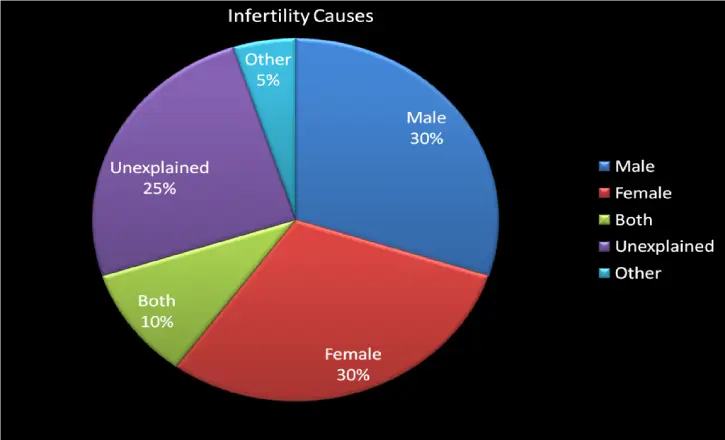Infertility is defined as the inability to get pregnant despite repeated attempts. Infertility, on the other hand, may express itself in a variety of ways. Whatever the symptoms of infertility are, they might be caused by a variety of illnesses. The following are the primary signs of probable infertility:
Table of Contents
Associated infertility symptoms in women:
- Menstrual indicators: The menstrual cycle of a woman is a clear sign of her ovulation. If her periods are irregular, with particularly heavy or light bleeding, or if the number of days between periods varies each month, she may have a fertility-related issue. Missed periods or periods that cause a lot of discomfort and cramping are also potential indicators of female infertility.
- Hormonal indicators: A disruption in hormone production may also result in female infertility. In this scenario, infertility symptoms include noticeable changes on the skin’s surface, such as the emergence of acne, or atypical hair growth on the upper lips, chin, and chest, which may be evaluated by infertility therapy. Other warning indicators include weight gain or losing hair on the scalp, as well as sadness and decreased libido.
- Pain during sex: Pain during sex can indicate the presence of abnormalities such as infections, endometriosis, non-cancerous tumors in the uterus, or even diseases such as pelvic inflammatory disease (which causes damage to various parts of the female reproductive system), which is a major cause of infertility in women.
- Abnormal nipple discharge: In rare situations, the nipples may produce an odd milky discharge. This is another sign of male infertility.
- Hormonal indicators: Hormone imbalances may lead to infertility and may be coupled with other symptoms such as decreased hair growth, decreased libido, and even abnormal breast development.
- 2. Ejaculatory issues: Men who are infertile may have ejaculatory disorders such as erectile dysfunction, which is the inability to maintain an erection during sexual activity. In addition, extremely little amounts of fluid may be evacuated, if at all.
- Testicular abnormalities: Any discomfort, swelling, or lump in the testicles may be signs of infertility. Male infertility may also be characterized by tiny and solid testes.
Why your daily diet is important for fertility health?
The kind and amount of food you eat each day may have a big influence on your health. When you are diagnosed with a medical problem, one of the first things you will be asked to do is adjust your diet. Numerous research has been undertaken to determine whether or not there is a relationship between an individual’s eating habits and the impacts on his or her fertility. According to this research, your food has the capacity to either improve your performance or significantly diminish your fertility levels. A nutritious diet is critical for raising your chances of conceiving naturally or with the help of fertility treatments. Furthermore, it helps the way the embryo grows in the womb after conception.
We assist with assisted reproduction at Fertility clinic. We will provide you with ovulation-promoting medications. To maximize the odds of becoming pregnant, insemination may be timed around ovulation.

